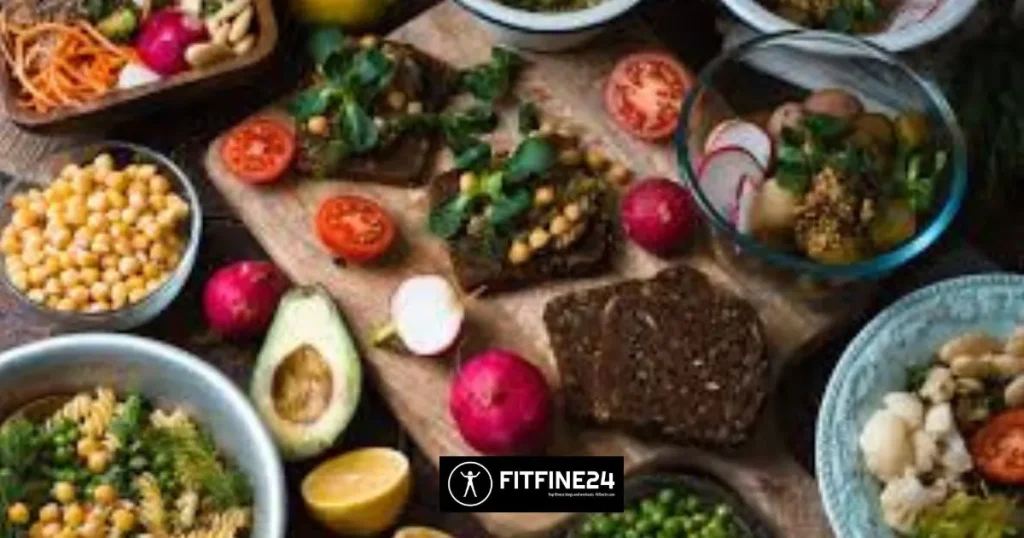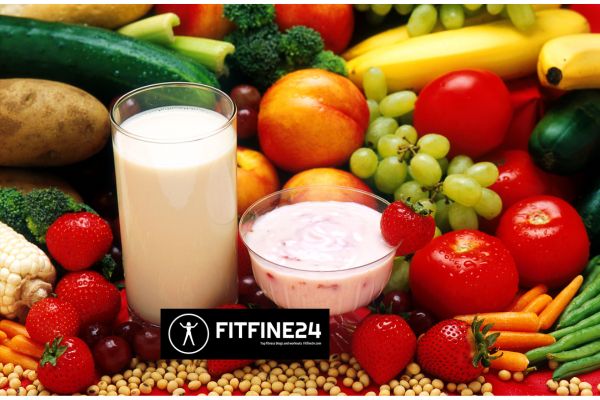Introduction
Deciding to eat vegetarian is a good beginning for anyone looking towards leading a healthier life and, of course, a sustainable food for eating. Transitioning to a vegan diet plan may seem daunting, but the truth is there are many types of veggie diets, and knowing which one meets your needs most accurately is important. Here are the different types of vegetarian diets, their pros, and how to start with a plant-based food. This article is aimed at helping you make the right decision, whether your reasons are for health, environmental, or just to try something new.

How to choose a vegetarian diet at fitfine24?
A vegetarian diet consists of plant-based foods while eliminating meat, poultry, and fish. But there are multiple versions out in the world, and some of those derivatives get into dairy or eggs or whatever. Learning about these variances can help inform what diet works best with your health and lifestyle goals.
Types of Vegetarian Diets How to choose a vegetarian diet
This is the type of vegetarianism that most people are familiar with. Lacto-ovo vegetarians: Do not eat meat, poultry, or fish, but do. Consume dairy products and eggs; This suits those who wish to retain their animal products in the serving of protein and calcium but at the same time stop eating meat.
Lacto Vegetarian How to choose a vegetarian diet
Lacto vegetarians eat dairy products (milk, cheese, and yogurt) but do not eat eggs or fish; they are a type of ovo-lactarian. It can be a good choice for those of us who like to consume dairy products but are not big fans otherwise.
Ovo Vegetarian
Lacto ovo vegetarians eat eggs but not any dairy, meat, chicken, or fish. This diet will more or less give the people who are lactose intolerant but would love to have protein from eggs a helping hand.
Vegan How to choose a vegetarian diet
A vegan diet consists of plant-based foods, while animal products are not permitted, neither is dairy or honey. Veganism: Vegan is all about plant-based foods such as fruits vegetables, and grains starchy plants legumes, nuts, and seeds. It is a great option for those looking to lead an eco-friendly and ethical lifestyle.
Flexitarian How to choose a vegetarian diet
When follows a flexitarian-based diet, eats mostly plant sources and occasionally meat/fish. Perfect for people who are looking to lean towards a vegetarian diet, or want the convenience of being able to occasionally eat meat while still enjoying some benefits of adopting a plant-based lifestyle.

Benefits of a Vegetarian Diet
Improved Heart Health
Fruits, vegetables and whole grains are the staples of vegetarian diets These foods are high in fiber as well as antioxidants. These foods can lower your cholesterol and thus help reduce heart disease.
Weight Management
How to choose a vegetarian diet consisting mainly of vegetables and whole grains can help with weight loss. Deliver It is also important to note that being overweight puts you at higher risk as well. Also, since plant-based foods are less energy-dense and more nutrient-rich than animal-based ones, keeping the pounds off is far easier.
Environmental Sustainability How to choose a vegetarian diet
Choosing a vegetarian diet can considerably minimize your carbon footprint. Plant-based food is usually more resource-efficient and therefore an environmentally friendly option.
Rich in Nutrients
When done right, a vegetarian diet can provide much more than the basic vitamins and minerals one might think of! Leafy greens, legumes, nuts, and seeds are good sources of iron, calcium, and protein, respectively, so consuming them will be beneficial for your health.
How to choose a vegetarian diet that is best for you?
Think About Your Diet
Various levels of nutrients are provided by different vegetarian diets. If protein is a concern of yours, maybe the lacto-ovo vegetarian diet with added eggs and dairy could be for you. Vegans need to be particularly careful to ensure adequate amounts of vitamin B12, iron, and omega-3 fatty aids either through complementary traces in fortified foods or from supplements.
Assess Your Food Preferences
Why Choose a Diet with Which You Are Almost Certain to Cheat? If you like eggs and dairy, then a lacto-ovo vegetarian diet might be for you. If your whole diet will be free from animal products, you may want to consider veganism.
Start Gradually
Just switching overnight can be quite difficult in starting a vegetarian lifestyle. Gasparaj encourages starting off with entirely meatless meals a few times each week before gradually working up your overall plant-based consumption. This will allow your body to adapt, making it easier for you to adhere over time.
Explore New Recipes How to choose a vegetarian diet
For one, if you want to keep on eating How to choose a vegetarian diet, the benefits of doing that are many. You must mix it up about as much as possible. Try vegetarian meals featuring beans, lentils, tofu, or tempeh This will also help you to keep your meals new and healthy.
Consult a Nutritionist
If you want a personalized approach, meet with an R.D. These professionals can also assist you in devising a diet plan that would be both nutritionally adequate as well as exactly what you require to help get back on track on your way to reaching/meeting normal goals concerning health.

How To Transition Into Remote Work
Add Plant-Based Staples: Fill your pantry with plant-based staples such as beans, whole grains nuts, and legumes.
Meal Plan Ahead: Having a meal plan for the week can be really helpful to keep you on track with your vegetarian goals.
Hydrate—Make sure to stay well hydrated, as water is vital for your digestion, and even more durable in case you are upping the quantity of fiber you eat at each meal.
Give it Time: Changing any part of your diet is going to take time. Strive for progress, not perfection.
Who are good vegans?
How to choose a vegetarian diet can be a wholesome and enjoyable lifestyle, but you have to find the version that works best for your needs, wants, and likes! A plant-based diet has lots of advantages to offer— follow the suggestions above, plan ahead a little, and be patient! The bottom line is this: listen to your body, and if you want or need a lacto-ovo, vegan, flexitarian path… then there is no roadmap other than feeling out what works best for YOU.

Conclusion
Opting for a vegetarian diet provides with you the key to good health, weight, and an environmentally friendly lifestyle. Given the 38 different kinds of vegetarianism, there’s truly a style to suit every level and degree for everyone. How do I get started on going vegetarian?? Read this guide and learn how to ease the process for yourself!

